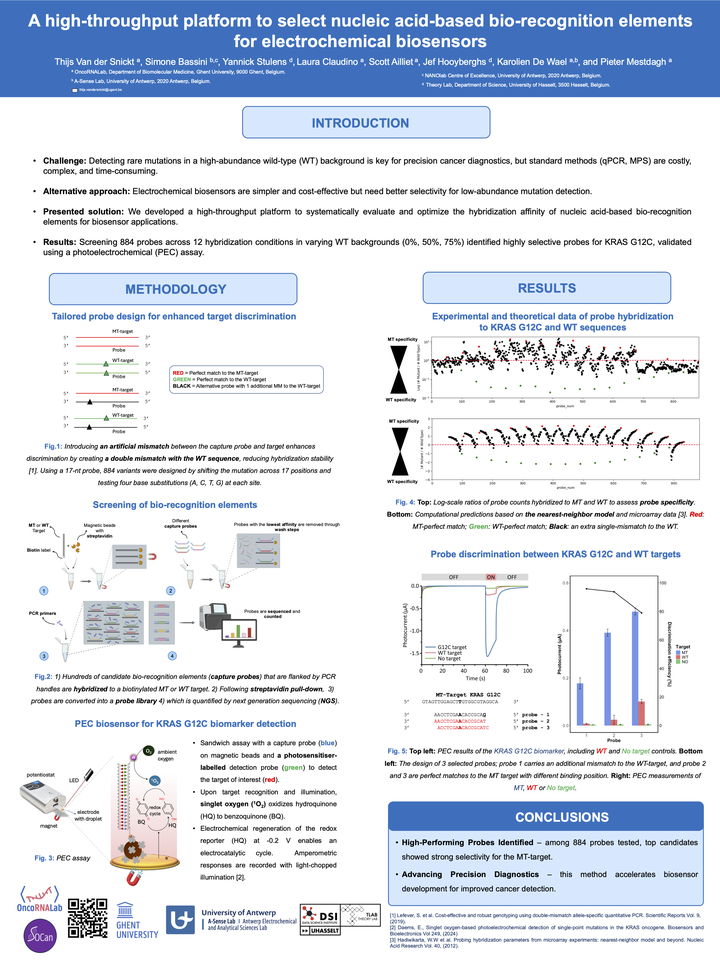A high-throughput platform to select nucleic acid-based bio-recognition elements for electrochemical biosensors

Detecting low-frequency mutations within a high-abundant wild-type (WT) background is critical for precision cancer diagnostics. Standard methods, such as qPCR and NGS, face challenges including high costs, workflow complexity, and long turnaround times. Electrochemical biosensors that rely on mutation-specific capture probes present a promising alternative through their simplicity and cost-effectiveness but currently lack the sensitivity required for low-abundant mutation detection. We developed a high-throughput platform to study the affinity between biorecognition elements (i.e. capture probes) and target DNA, enabling a systematic evaluation of hybridization parameters such as temperature, salt concentration, probe sequence and probe binding position.
Hundreds of candidate capture probes that are flanked by PCR handles are hybridized to a biotinylated mutant or wild type target. Following streptavidin pull-down, probes are converted into a probe library that is quantified by next generation sequencing.
The platform was optimized through calibration, selectivity and reproducibility assessments. We then applied the platform to identify capture probes that display the highest sensitivity and selectivity for the KRAS G12C mutation. A total of 884 probes, in replicate, were screened across 12 hybridization conditions (6 temperatures, 2 salt concentrations) using biotinylated mutant KRAS DNA in varying WT backgrounds (0%, 25%, 75%) or a biotinylated WT DNA, generating 84 864 data points. We observed substantial differences in probe sensitivity and selectivity and found that introducing an additional mismatch in the probe sequence can further boost probe selectivity. Performance of a selection of probes was validated using a photoelectrochemical assay on the KRAS G12C target, further confirming the robustness and applicability of our platform for biosensor probe selection.
We present a high-throughput platform for optimizing hybridization-based probe recognition elements in biosensors, allowing for precise control over hybridization parameters. This advancement paves the way for designing more sensitive and selective biosensors tailored for variant detection in complex biological samples.